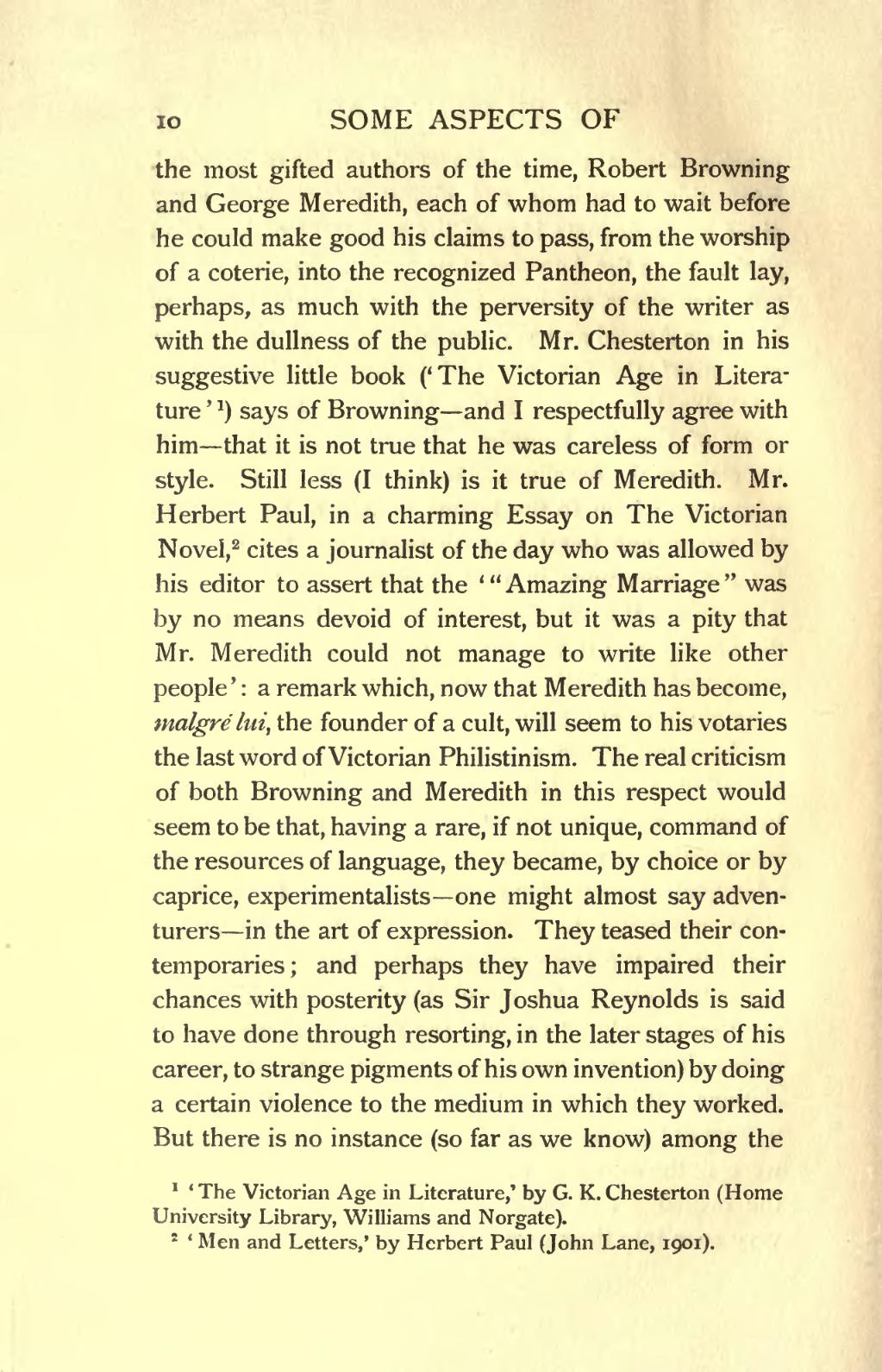the most gifted authors of the time, Robert Browning and George Meredith, each of whom had to wait before he could make good his claims to pass, from the worship of a coterie, into the recognized Pantheon, the fault lay, perhaps, as much with the perversity of the writer as with the dullness of the public. Mr. Chesterton in his suggestive little book ('The Victorian Age in Literature'[1]) says of Browning—and I respectfully agree with him—that it is not true that he was careless of form or style. Still less (I think) is it true of Meredith. Mr. Herbert Paul, in a charming Essay on The Victorian Novel,[2] cites a journalist of the day who was allowed by his editor to assert that the '"Amazing Marriage" was by no means devoid of interest, but it was a pity that Mr. Meredith could not manage to write like other people': a remark which, now that Meredith has become, malgré lui, the founder of a cult, will seem to his votaries the last word of Victorian Philistinism. The real criticism of both Browning and Meredith in this respect would seem to be that, having a rare, if not unique, command of the resources of language, they became, by choice or by caprice, experimentalists—one might almost say adventurers—in the art of expression. They teased their contemporaries; and perhaps they have impaired their chances with posterity (as Sir Joshua Reynolds is said to have done through resorting, in the later stages of his career, to strange pigments of his own invention) by doing a certain violence to the medium in which they worked. But there is no instance (so far as we know) among the
- ↑ 'The Victorian Age in Literature,; by G. K. Chesterton (Home University Library, Williams and Norgate).
- ↑ 'Men and Letters,' by Herbert Paul (John Lane, 1901).
